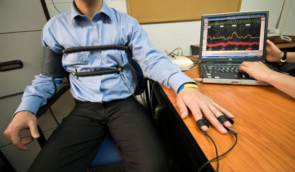90% without documents: report on prisoners deported to Russia presented in Kyiv
On 14 February 2025, the Ukraine Crisis Media Center hosted a presentation of the analytical report “How can Ukraine help Ukrainian prisoners deported to Russia return home”, which analyses the scale and methods of forced displacement of prisoners, violations of their rights, and the obstacles they face when trying to return to Ukraine. The event was organised by the Human Rights Centre ZMINA, the NGO Protection for Prisoners of Ukraine and the European Prison Litigation Network (EPLN).
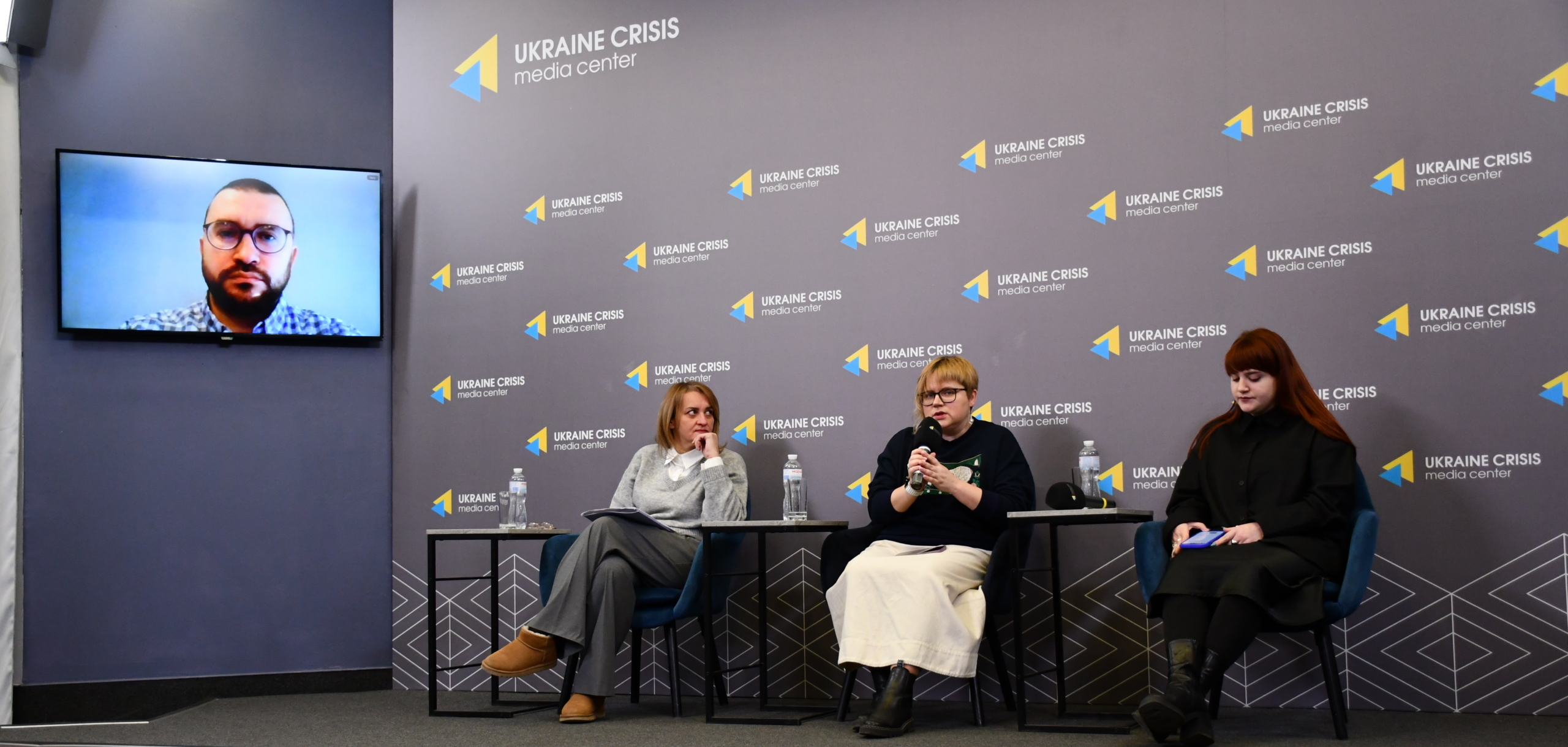
After 24 February 2022, the conditions of detention in the temporarily occupied territories of Ukraine deteriorated dramatically, with many prisoners being forcibly transferred to Russia. Between 3 and 6 November 2022 alone, Russia deported between 1,800 and 2,000 prisoners, including several hundred seriously ill prisoners, including those undergoing treatment for tuberculosis.
In detention within the territory of the Russian Federation, the deported prisoners were subjected to torture and ill-treatment, psychological pressure and coercion to acquire Russian citizenship. They were held in inhumane conditions and without access to medical care. After their release, the prisoners also face obstacles to returning to Ukraine and do not have access to legal and social support.
During the event, the participants discussed ways to address these issues and possible steps that the state, civil society, and international partners can take to assist the deported citizens.
Hanna Skrypka, a Legal Adviser of the NGO Protection for Prisoners of Ukraine, spoke about the experiences of Ukrainian prisoners under occupation, as well as the problems and obstacles faced by those deported to the Russian Federation.
“Everyone who survived the occupation and forced deportation to Russia experienced torture, they were beaten by Russian special forces, people were tortured with stun guns, humiliated. There were people with open tuberculosis and other chronic diseases. For the Russians, they were just objects, not people. This is how our citizens became hostages of the occupiers and were forcibly taken to Russia and the occupied Crimea. In the Russian Federation, their sentences were illegally changed under Russian law,” said Hanna Skrypka.
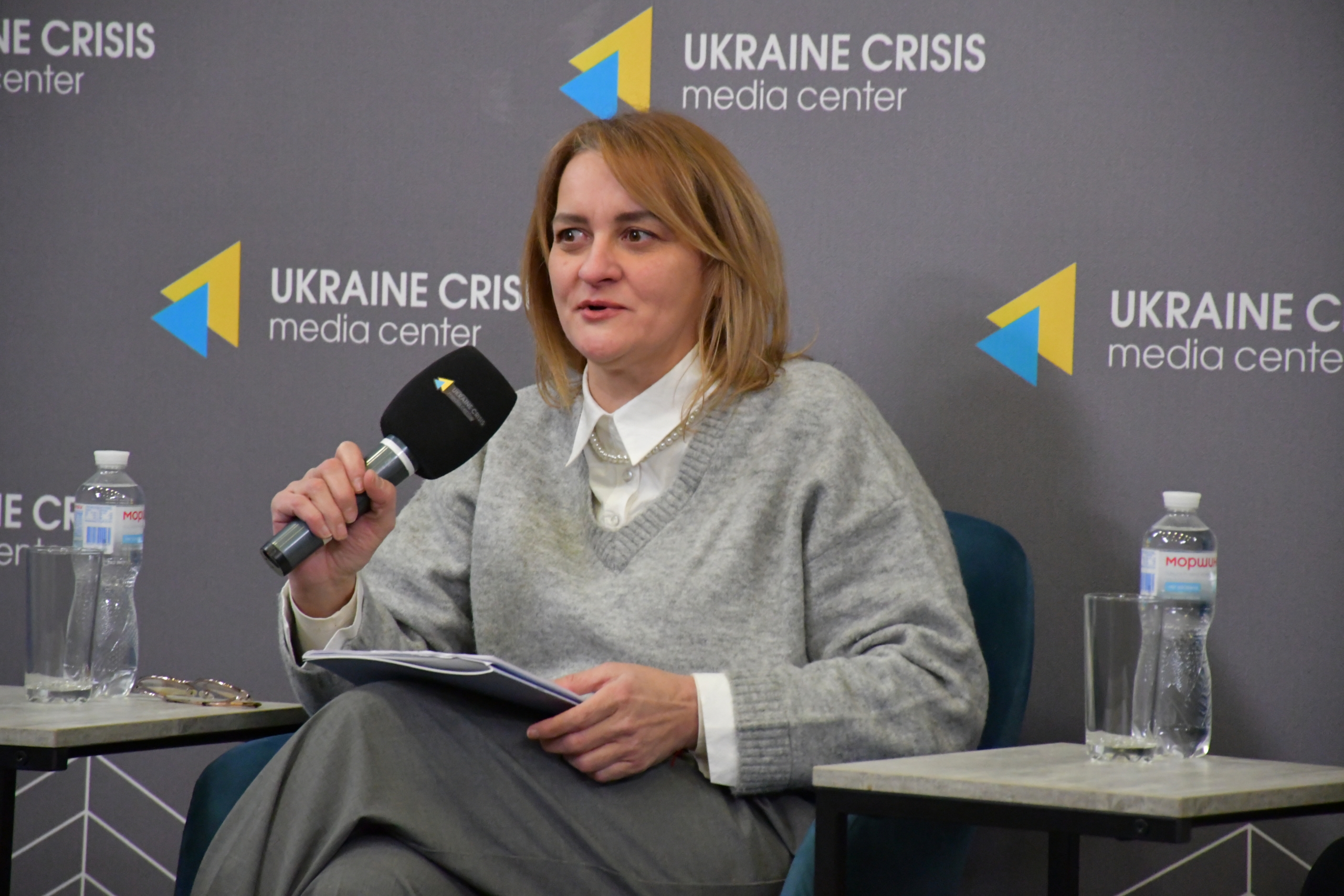 Hanna Skrypka
Hanna SkrypkaShe also said that not all of them get freedom after their sentence is over, and the only corridor through which they can get to Ukraine is Georgia: “They have two options. The first is to be re-detained and placed in temporary detention centres for foreign citizens in the Russian Federation, where they can stay for months and years. The second is to be released from the occupied Crimea without money, phone, or documents. 90% of those released have no documents, and without them there is no return to Ukraine“.
Hanna also drew attention to another systemic problem – this category of citizens is entered into national databases either as missing persons or as those evading a court sentence. In addition, former prisoners are entered into the Schengen Information System (SIS), which contains data on people who have ever entered the Schengen area and had problems with the law. As a result, people cannot travel outside Ukraine.
“This makes it much more difficult to cross the border. The only place where they can cross the border is Georgia, but even there they get into a buffer zone where they can stay for a long time while waiting for an identity card to return to Ukraine,” says Hanna, adding that out of approximately 2,000 deported prisoners, 400 have been returned from the territory of the Russian Federation, 320 of them are already in Ukraine, and the rest are in Georgia or in third countries.
Alena Lunova, Advocacy Director of the Human Rights Centre ZMINA, stressed the need to create a state strategy for the return of deported prisoners, including legal and social mechanisms for their rehabilitation: “Despite the fact that the return of all deported Ukrainian citizens is part of the Peace Plan of the President of Ukraine (point 4), it seems that the return to Ukraine of prisoners illegally deported by the Russian Federation is not a subject of negotiations with Russia. Therefore, the prisoners themselves, without the help of our state and even with certain obstacles from it, have to look for a way to return home. Without the help of NGOs and charities, this is almost impossible. However, before the practical issue of leaving Russia arises, former prisoners are often subjected to administrative detention and placed in temporary detention centres for foreign citizens. In other words, Russia, which deported them, detains them as illegal migrants after their release from the penal colony“.
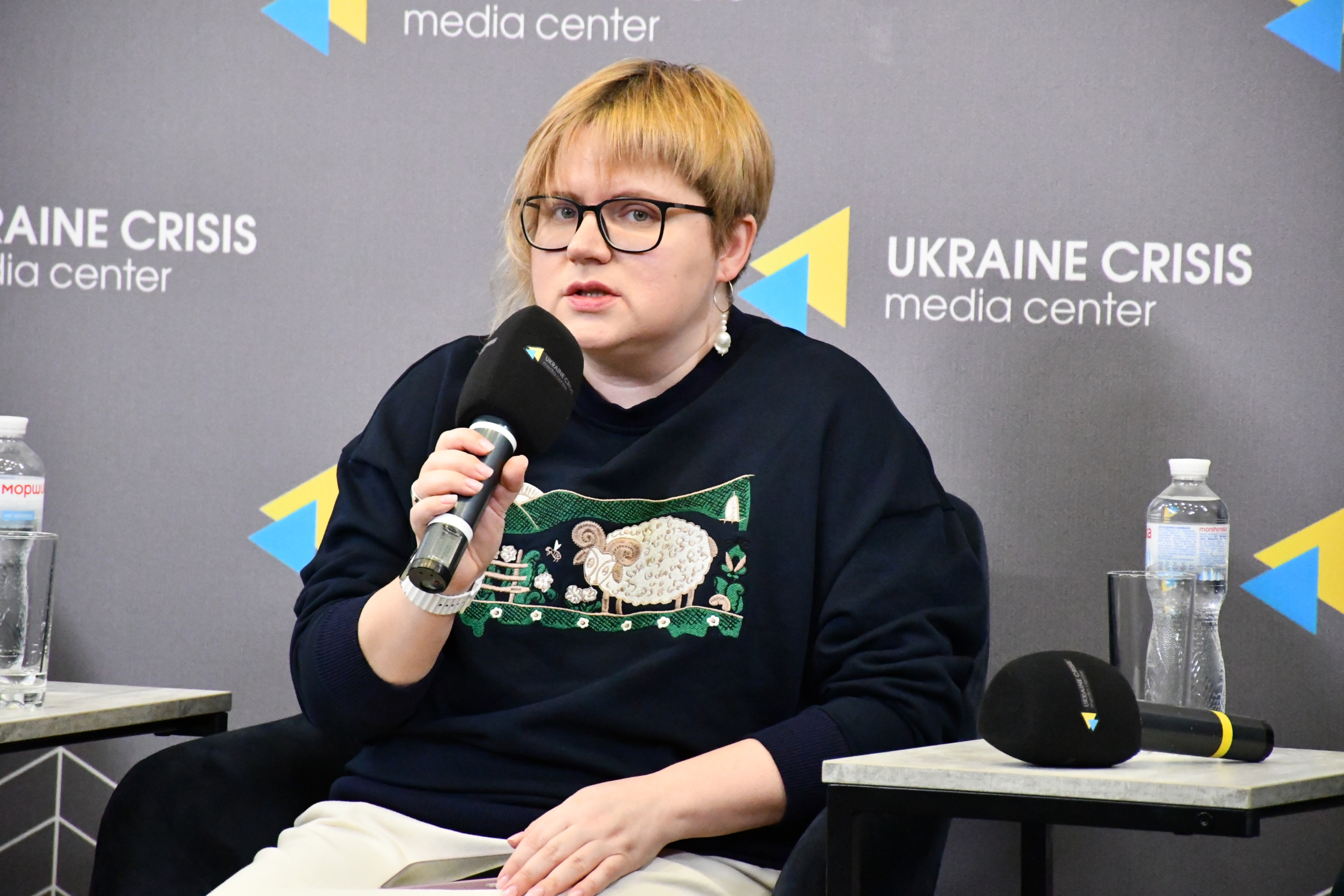 Alena Lunova
Alena LunovaThe issue of discrimination, stigmatisation of convicted civilians and insufficient attention of the Ukrainian authorities to deported prisoners was addressed by Vasyl Melnychuk, legal adviser of the European Prison Litigation Network (EPLN). In particular, he noted that the problem arose not in 2020, but in 2014 when Russia occupied Crimea and parts of Donetsk and Luhansk regions.
“This issue should have been resolved a long time ago, but it is still relevant. Currently, relevant draft laws have been registered in the Verkhovna Rada, but they have not yet been adopted. National legislation requires diplomatic missions to issue our citizens with certificates of return to Ukraine within a day. But our people have been waiting in the buffer zone for months. It is illegal to keep people in Georgia for a long time and not give them this certificate. The state must assume this responsibility and create mechanisms to ensure the rights of our citizens, as they have experienced war crimes. They are direct witnesses and victims of war crimes committed by the Russian Federation“, said Vasyl Melnychuk.
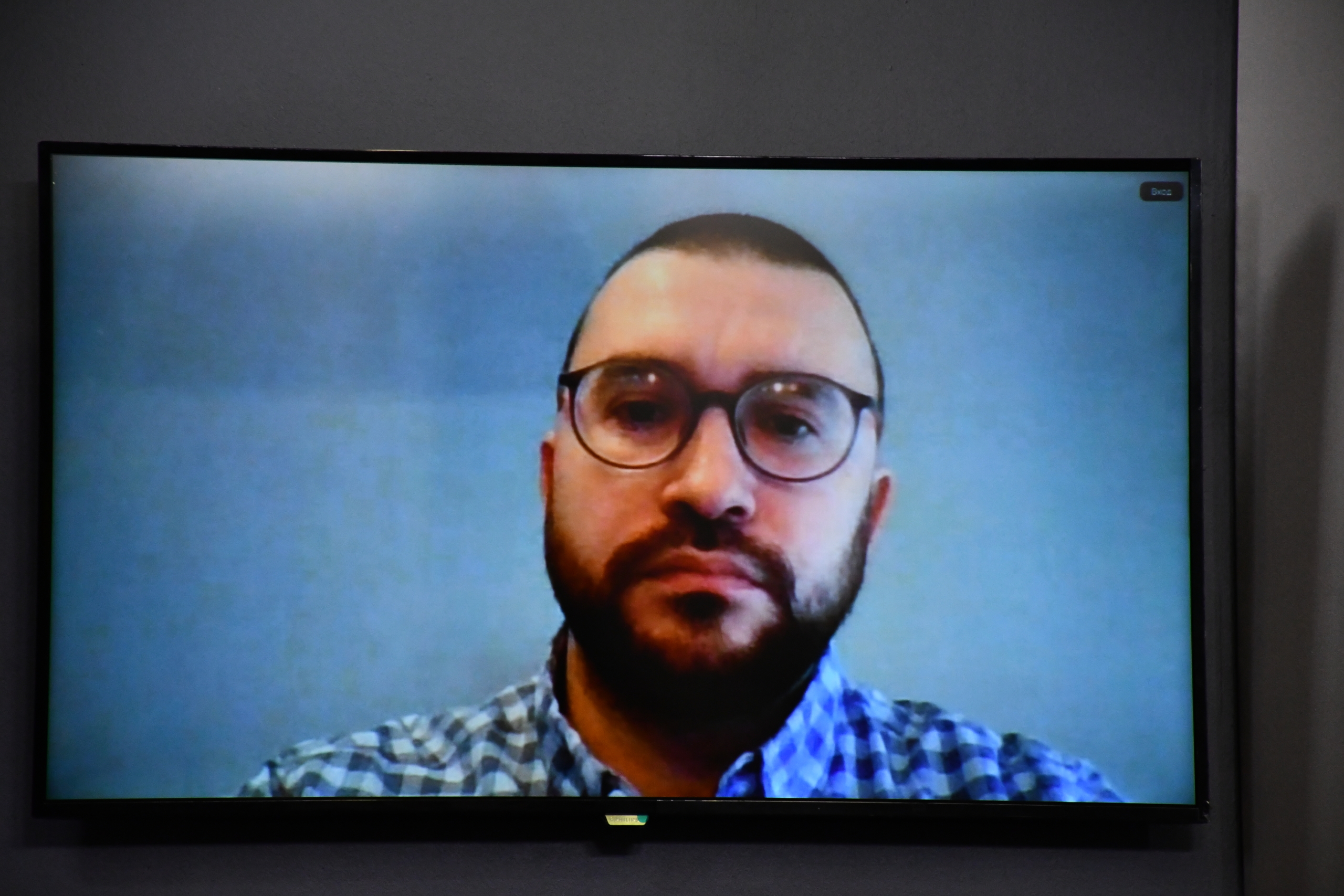 Vasyl Melnychuk
Vasyl MelnychukDuring the event, it was also stated that as of the end of 2024, 244 people among the released prisoners returned to Ukraine had been recognised as victims in criminal proceedings on deportation to the Russian Federation.
The full video of the event is available here.
You can find the text of the analytical report “How can Ukraine help Ukrainian prisoners deported to Russia return home” here.
If you have found a spelling error, please, notify us by selecting that text and pressing Ctrl+Enter.




